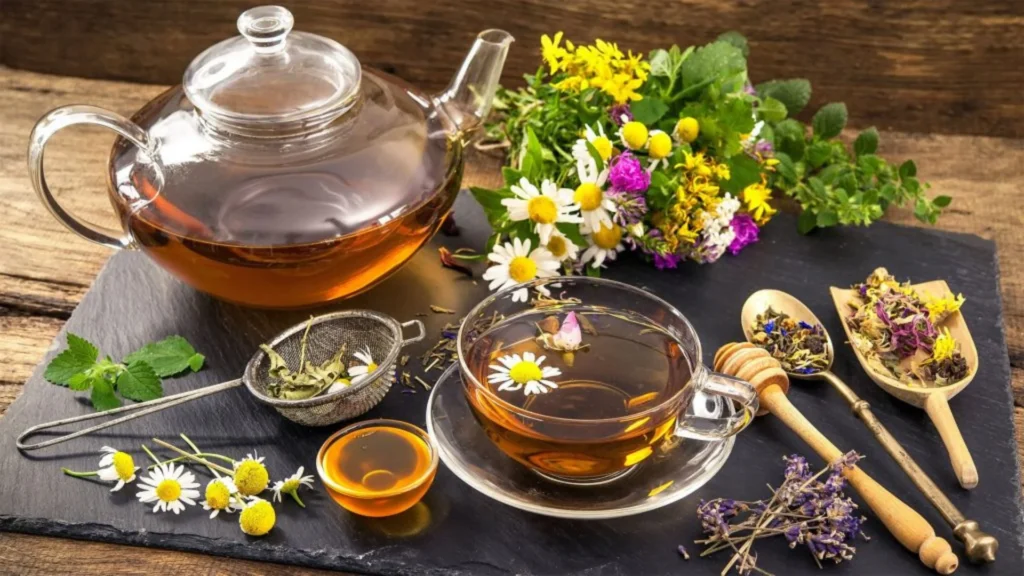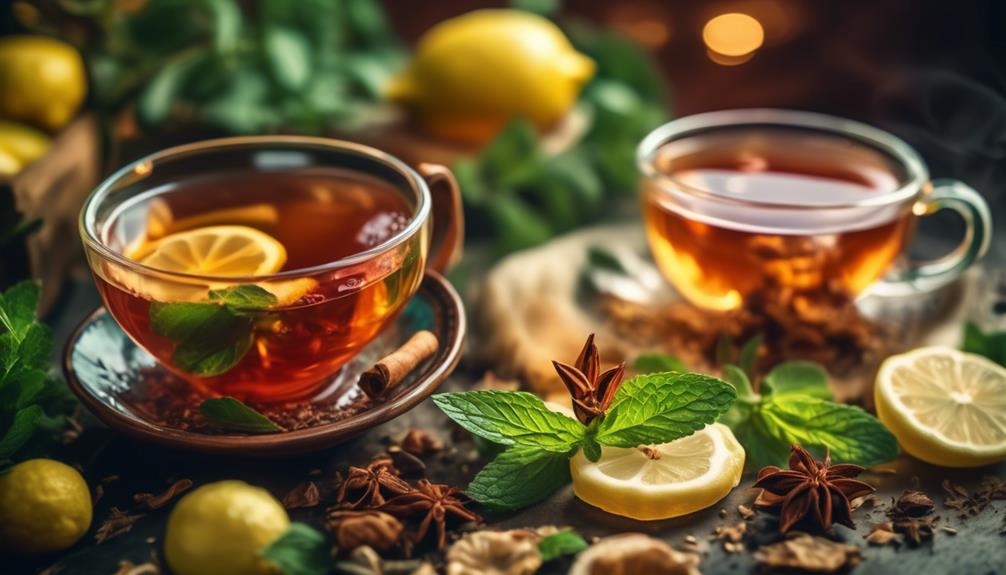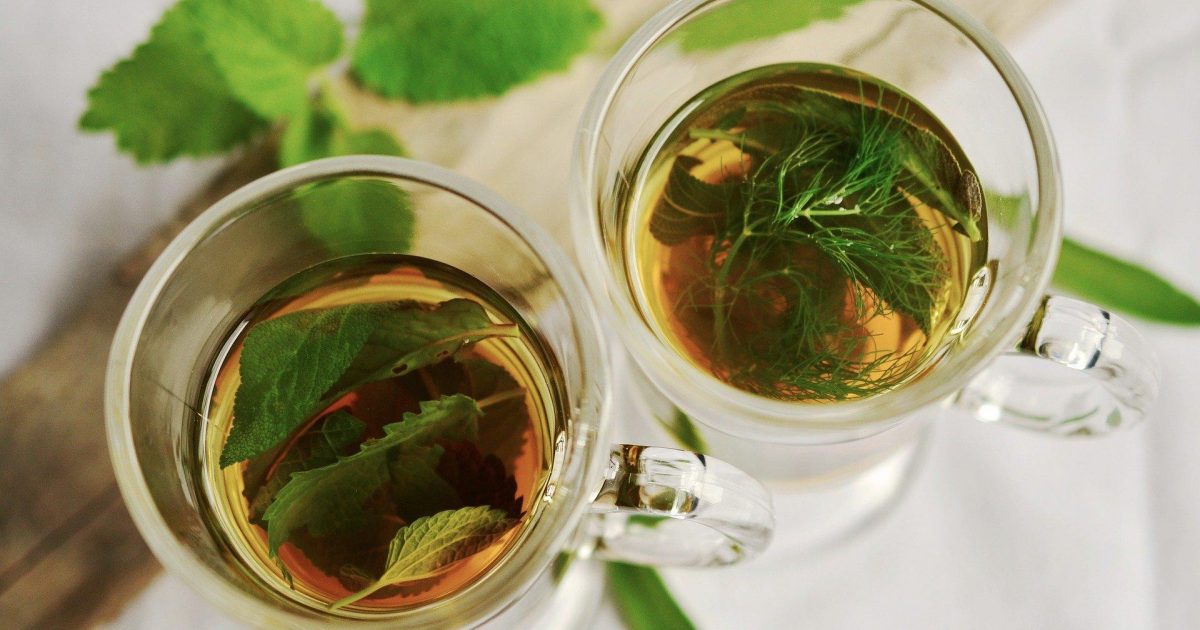Herbal Tea: What It Is, Why You Should Drink It, and Its Incredible Benefits :
Herbal tea has been cherished around the world for centuries, offering an aromatic and caffeine-free alternative to traditional teas. Unlike green, black, or oolong teas, which come from the Camellia sinensis plant, herbal teas are made from a blend of dried flowers, leaves, seeds, spices, and even roots. Each herbal tea brings unique flavors, aromas, and health benefits, making it a popular choice for those looking to relax and improve their wellbeing.
What is Herbal Tea?
Herbal tea, or tisane, is a beverage brewed from various plant ingredients, making it naturally caffeine-free and suitable for people of all ages. Popular herbal tea ingredients include chamomile, peppermint, ginger, hibiscus, and lemon balm. Cultures worldwide have long used these plants for medicinal and relaxation purposes.
There are two primary types of herbal teas:
- Single-Ingredient Herbal Teas: Made from just one herb or flower, such as chamomile or peppermint, allowing each herb’s unique properties to shine.
- Blended Herbal Teas: These teas combine multiple herbs, spices, and flowers for a balanced flavor profile and often enhanced health benefits. For example, a blend of chamomile, lavender, and valerian root is popular for relaxation.
Since herbal teas are naturally caffeine-free, they offer a safe and gentle option for those sensitive to caffeine or looking for a bedtime beverage.

Why Drink Herbal Tea?
There are numerous reasons people turn to herbal tea, beyond just its pleasant taste. Here are some key reasons to consider adding herbal tea to your daily routine:
- Natural Relaxation and Stress Relief: Chamomile, lavender, and valerian root teas offer calming effects These teas can help reduce stress, improve relaxation, and promote better sleep without the caffeine boost that comes with traditional tea or coffee.
- Improved Digestion: Herbs like ginger, peppermint, and fennel can aid digestion. Drinking a cup of peppermint or ginger tea after a meal helps soothe the digestive tract, relieve bloating, and alleviate stomach discomfort.
- Immune Support: Certain herbs, such as echinacea, elderberry, and hibiscus, are valued for their immune-boosting properties. These herbs contain vitamins, antioxidants, and beneficial compounds that can strengthen the body’s defenses against colds and seasonal illnesses.
- Hydration and Detoxification: Herbal teas are an excellent choice for staying hydrated, especially since they lack caffeine, which can dehydrate. Teas like dandelion and nettle also have natural detoxifying properties, promoting kidney health and supporting the body’s cleansing processes.
- Rich in Antioxidants and Nutrients: Many herbs, flowers, and fruits used in herbal teas are loaded with antioxidants, vitamins, and minerals. Antioxidants, found in teas like hibiscus and rooibos, help fight free radicals, reducing the risk of chronic diseases and promoting overall health.
- Mental Clarity and Focus: While caffeine-free, certain herbs, such as ginkgo biloba and rosemary, are believed to support mental clarity and focus. Herbal teas can enhance cognitive function without the jittery effects of caffeine, making them a great choice for relaxation and mental sharpness.
Health Benefits of Popular Herbal Teas
Each herbal tea variety brings unique benefits. Here’s a closer look at some of the most popular types and what they can offer:
1. Chamomile Tea for Relaxation and Sleep
People widely enjoy chamomile tea for its gentle, calming effect as one of the most popular herbal teas. With its mild, slightly sweet flavor, it is a popular bedtime tea. Chamomile’s antioxidant apigenin binds to brain receptors, relaxing the body and promoting sleep, aiding those with insomnia.
2. Peppermint Tea for Digestion and Energy
Peppermint tea has a cool, refreshing taste and is well-regarded for its digestive benefits. Menthol, the main active ingredient in peppermint, acts as a muscle relaxant, helping to relieve bloating, cramps, and other digestive discomforts. While peppermint tea is caffeine-free, its invigorating scent can also provide a natural boost to your energy levels.
3. Ginger Tea for Immunity and Anti-Inflammation
People traditionally use ginger tea to support the immune system and reduce inflammation. Its active ingredient, gingerol, has antioxidant and anti-inflammatory properties that can help alleviate nausea, reduce muscle soreness, and support immunity. Many people also drink ginger tea to relieve joint pain or support respiratory health.
4. Hibiscus Tea for Heart Health and Blood Pressure
With a bold, tangy flavor, hibiscus tea is not only refreshing but also beneficial for heart health. Hibiscus contains anthocyanins, a type of antioxidant that can help manage blood pressure and reduce bad cholesterol. It’s also a great source of vitamin C, making it helpful in supporting the immune system and overall health.
5. Lemon Balm Tea for Mood and Mental Clarity
Lemon balm tea offers a light, lemony taste and often improves mood and mental clarity. Studies suggest it can help with stress, anxiety, and even improve memory. It’s a gentle, uplifting tea that’s great to drink when you need relaxation but also want to stay alert and focused.

How to Brew and Enjoy Herbal Tea
Preparing herbal tea is simple. Begin by heating water to near boiling and steeping your herbs, flowers, or tea bags for 5 to 10 minutes, depending on the desired strength. Longer steeping times can enhance both flavor and health benefits. Many herbal teas have a naturally mild sweetness, but you can add honey or a slice of lemon if you prefer a sweeter or more citrusy taste.
Tips for Choosing and Storing Herbal Tea
To get the most out of your herbal tea, opt for high-quality, organic options free from artificial additives. Loose-leaf teas are generally fresher than tea bags, allowing you to enjoy a richer, more potent flavor. Store your tea in a cool, dark, dry place to maintain its flavor and health benefits for longer.
Conclusion
Herbal teas offer a diverse array of flavors and health benefits, from promoting relaxation to supporting the immune system and aiding digestion. These natural, caffeine-free drinks are a soothing addition to any day, ideal for those looking to relax or maintain wellness. By experimenting with different varieties, you can find herbal teas that align with your taste preferences and health goals. Embrace the ritual of herbal tea, and let this ancient drink become a part of your modern wellness routine.

